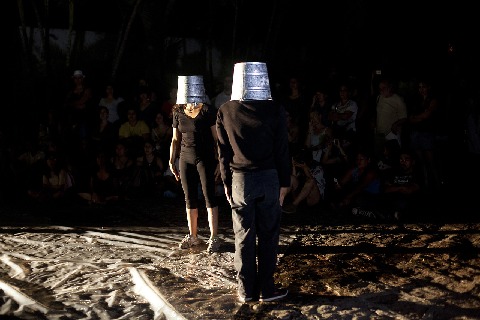Centro Cultural Jardín Borda,
Apr 03, 2014 - Apr 06, 2014
Cuernavaca, Mexico
Between Utopia and Disillusionment: Art as an Activator of Political Experience
by David Gutiérrez Castañeda
As dissidents of the ecclesiastical policy framework, Illich and friends argued that missionary work combines ethical and political paradoxes that can only be broached through an in-depth grasp of political economics, languages and social history. Concerned by those issues and living what might be called a monastic life of dissidence, they focused their critical research on literacy programs, body language and its perceptions, and also on what we now call development, scarcity and need studies. Over the course of a decade, CIDOC published almost sixty Cuadernos (Notebooks) using a highly versatile format (photocopies) that was able to prompt critical thought faster than publishing houses could at that time. At the same time, every year they organized international discussion forums attended by people like Paul Goodman, Erich Fromm, Peter Berger, Paulo Freire and Sergio Méndez Arceo, among others. It was in that context, Illich published his first texts in Spanish, such as La sociedad desescolarizada (1971), La convivencialidad (1973), and Energía y equidad (1974).
The group of intellectuals at CIDOC was indeed dissident. Although trained in different fields, they learnt to unlearn and deprofessionalize their practices by promoting methodological mechanisms to investigate and disseminate critical thought for Mexican and international universities. Their work also covered the paradoxes of the Truman agenda for Latin America, where development promotes the construction of need by shaping communities on a foundation of inequality (as Orlando Fals Borda also explained years later, and Arturo Escobar was subsequently to remind us). These communities can thus only be attended systematically by disciplinary people and means, university students and those schooled in the field of modernization, who on seeking to remedy a situation also promote the condition of underdevelopment that antecedes the practice. These ideas connect directly with a discussion of coloniality and imperialism and were to nourish the cartography of initiatives of a certain intellectual left.
CIDOC’s commitment called for complete independence, which for the team also implied budgetary independence. All economic dependence is emotional and intellectual dependence. Illich therefore generated a financing structure that could finance the team with dependable salaries through income from abroad and enrollment fees. In 1973 Illich undertook an analysis of the Mexican economy that showed that the economic exchange stemming from the growth of the oil industry that had taken place since the 1960s would lead to a large-scale economic crisis (which indeed occurred in the 1980s). Bearing this in mind and realizing that the work sustained by CIDOC for 8 years had reached the desired political maturity without being tainted by university academic culture, he proposed closing the Center. In the three years that followed the Center was reorganized financially, and ten years after its launching, symbolically almost to the day, it was brought to an end. The salary structure and the archive were distributed among all its members for potential use in other institutions (the archive continues to be worked on to this day in centers such as, for example, Mexico City University, but has been dismantled and has lost its cohesion due to the development and mobility to which it has been subjected).
Illich continued with his critique-based initiatives as a citizen of the world, to use his friends’ words. He also lived his own private life. It could be said, using Peter Sloterdijk’s words, that he lived his life with artistry. He created the ethical and tangible conditions that enabled him to conduct his own lifestyle. During the 1980s he began to suffer from a very aggressive form of cancer. In keeping with the research he conducted for Némesis médica (Medical Nemesis, 1975), he refused to be treated using medical technology and instead resorted to a combination of exercises, among them yoga and opium smoking, that enabled him to live for another 15 years without undergoing medical procedures. Although he was consistently creative, conceiving a work of art in terms of authorship was not one of Illich’s or his friends’ paradigmatic concerns.
His colleagues and friends continued CIDOC’s political work through language schools and the University of the Earth (Oaxaca), which focus on an intercultural, alternative approach to learning. That approach remains in force today.
|







